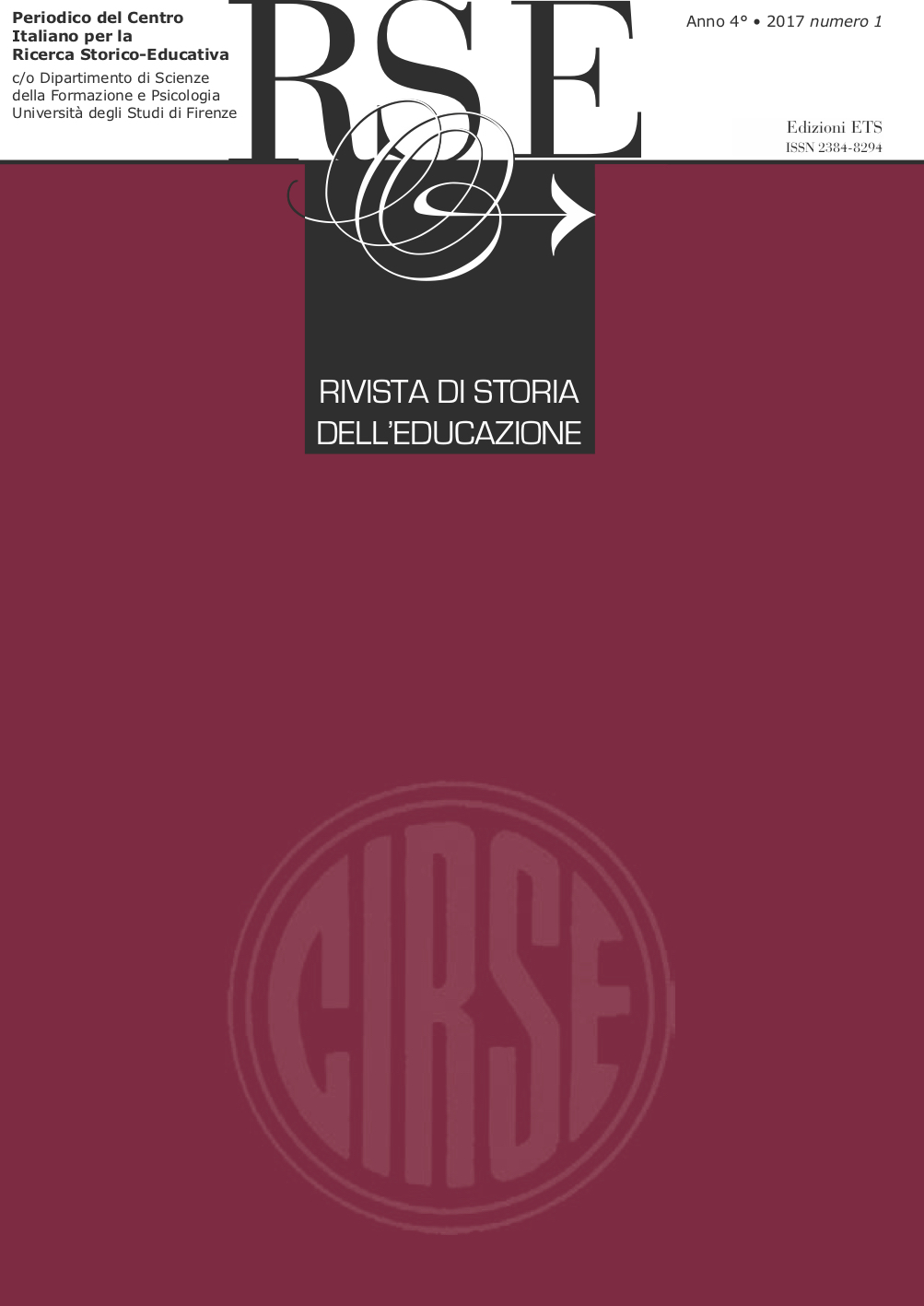Published 2018-06-13
Keywords
- Socialism, GDR, SED, socialist education, parsimony, penury, practical education
How to Cite
Abstract
The current research is carried out in a historiographic perspective with the help of ethnographic methodologies. It aims to highlight how consumer practices in East Germany have developed from the Socialist ideology. The close and inseparable link between education and the economy, the frequent urges promoted by the institutional apparatus that appealed to discipline and parsimony, the lack of raw materials and convertible currency with the Western Countries, the role of educational agencies, ubiquitous propaganda, as well as the limits imposed on cultural consumption; were co-authors of a consumption model (with the involved contradictions and related illicitnesses) that followed the footsteps of the Soviet model. The delicate issue of consumption thus engages also on a moral level, becoming a further pedagogical tool for Homo Sovieticus.

